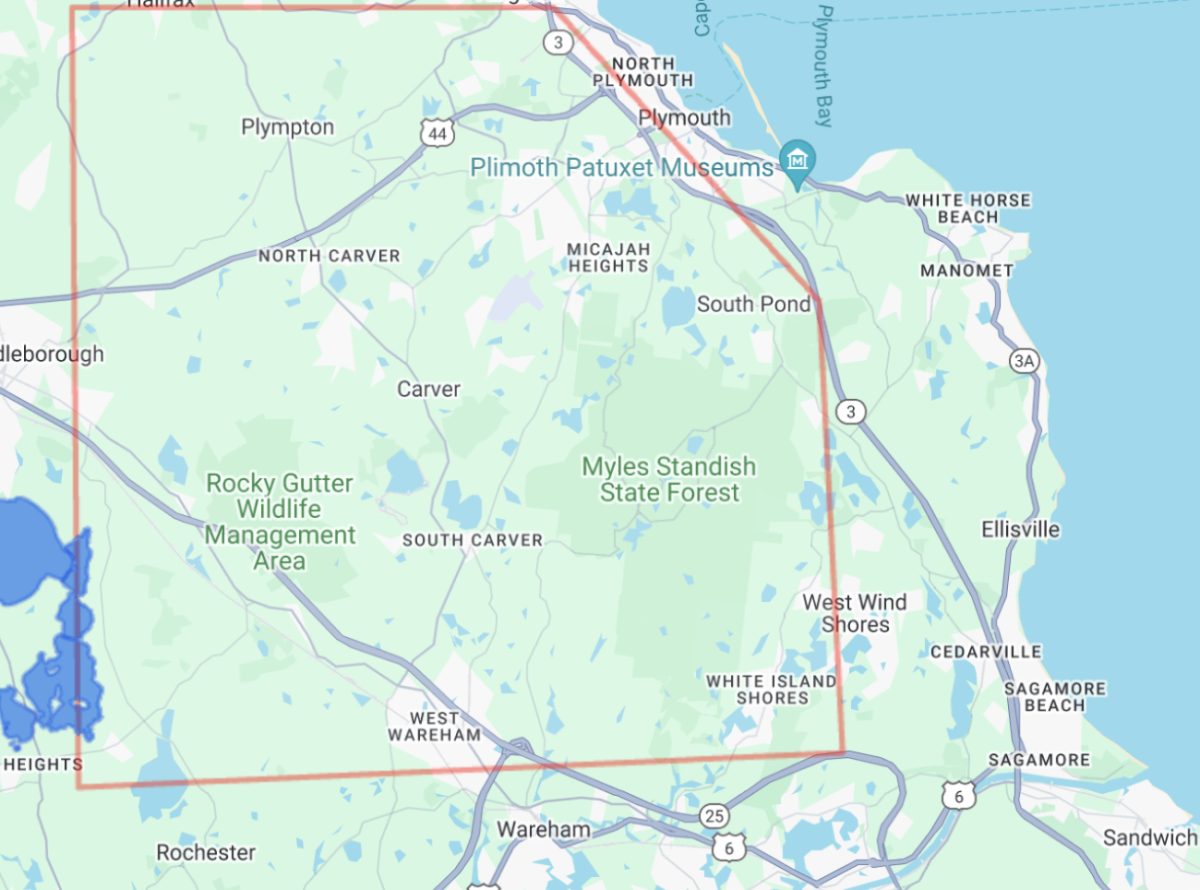Aerial spraying to kill mosquitoes in parts of Plymouth and surrounding towns is tentatively scheduled to begin Tuesday, said Ashley Randle, the state’s commissioner of agriculture. The spraying will take place inland, from dusk to dawn.
The effort is aimed at preventing people and animals from potentially being infected with Eastern equine encephalitis, a deadly disease carried by mosquitoes. Earlier this month, a horse in Plymouth tested positive for the virus. After that, Plymouth’s risk level for EEE was raised to high by the state. The town has since ordered fields and parks closed from dusk to dawn.
About 30 percent of people who contract the disease die from it, according to the Centers for Disease Control.
“It is extremely serious, and people under age 15 and adults over 50 are at a particular higher risk,” said Michelle Bratti, commissioner of health and human services for Plymouth. “Survivors of EEE may experience severe ongoing health problems such as neurological issues.”
Bratti urged residents to empty birdbaths and not leave any other standing water on their property, to wear mosquito repellant and long sleeves, and to avoid going out from dusk to dawn.
She said with Plymouth Public Schools resuming classes for first through 12th grades Wednesday, high school and youth league sports schedules will be adjusted to make sure children are not outside at times of peak mosquito activity.
Bratti advises people to use common sense and take precautions when deciding whether to be outside in the evening, including dining outdoors.
The state had been spraying in Plymouth this summer using trucks to target mosquito larvae. With the risk of EEE now so high, targeted aerial spraying for adult mosquitoes is being added.
“The aerial spraying is only used after efforts to control the mosquito abundance through killing larval mosquitoes and the removal of a suitable breeding habitat for the mosquitoes,” Randle said.
This is the first time since 2020 that aerial spraying is being conducted in Plymouth.
The Massachusetts Department of Agricultural Resources said in a press release spraying could continue for a second night. Rain would postpone spraying.
Unlike spraying from trucks, residents and most businesses do not have the option to opt out of aerial spraying, said Randle. But there are exceptions.
“Certified organic farms and aquaculture facilities are excluded, provided that they submitted location information to the Massachusetts Department of Agricultural Resources (MDAR) during their annual check-in,” said Danielle Berney, a department spokesperson, in an email.
Darlene Nickerson, owner of Gilbert Trout Hatchery in Chiltonville, said that in the past the Massachusetts Department of Agricultural Resources has agreed not to spray over her hatchery.
Anvil 10 + 10, the insecticide used for truck and aerial spraying, is harmful to fish and other pond life, as well as to beneficial insects such as dragonflies, according to the Massachusetts Department of Public Health.
Love Albrecht Howard, a horticulturalist and landscape designer who lives in Plymouth, said Anvil affects other insects, and called it “incredibly poisonous” to aquatic life.
Clarke, the manufacturer, says on its website that “applications will not pose a risk to healthy aquatic habitats. However, direct exposure to this product does present risk to some aquatic organisms.”
“The scary thing about spraying this week is we have migratory hummingbirds coming through and a big portion of hummingbirds’ diet are mosquitoes and other insects,” said Albrecht Howard, who designs all her landscapes so they can be maintained without pesticides or herbicides. She said she will take her hummingbird feeders in every night at 7:30 p.m. clean them and put them back out at 6:30 a.m.
Randle said her department works with beekeepers to mitigate harm to bees.
“While exposure is expected to be very low, some beekeepers may choose to cover their hives,” she said.
As for humans and pets, she said, there are no known health risks – including contamination of drinking water – and it is not necessary to keeps pets inside. Nevertheless, the state urges people and their pets to stay inside from dusk to dawn to prevent any risk of potential exposure to EEE.
Fred Thys can be reached at fred@plymouthindependent.org.

